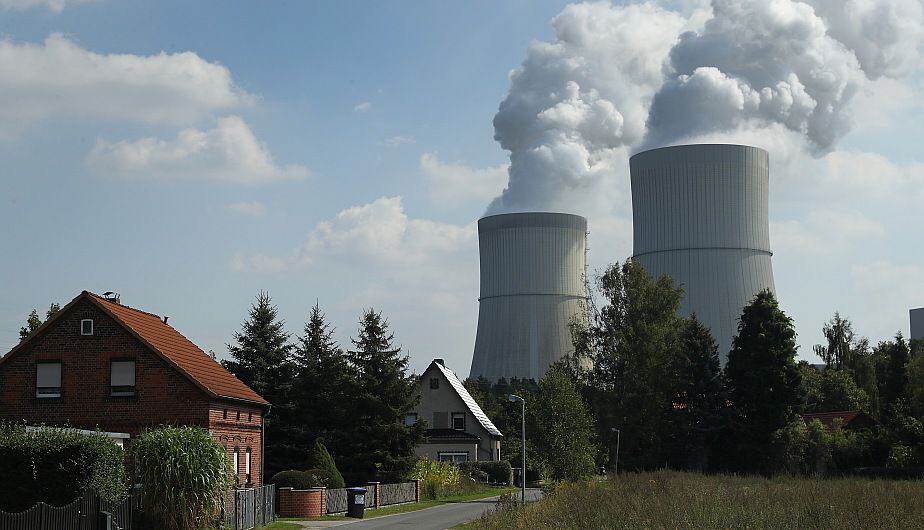
Germany entered the era of atomic Energy for civil use 66 years ago and had 37 reactors, the last three of which will be disconnected on April 15.
The protests of the anti-nuclear movement began just a decade and a half after the construction of the first plant. The blackout schedule has suffered several ups and downs and a last-minute extension, amid the energy crisis precipitated by the invasion of Ukraine.
The most relevant dates of the beginning and goodbye to this source of energy:
1957: The University of Munich activates the first nuclear reactor, although for research purposes and two years before the federal government sends the first bill on the use and construction of future nuclear plants to parliament.
1961: The first reactor in the territory of the Federal Republic of Germany (FRG) enters into service in Kahl (Bavaria).
1966: The German Democratic Republic (GDR) activates its first plant, in Rheinsberg, Brandenburg, the region surrounding Berlin.
1975: The anti-nuclear collective mobilizes in the south of the country against the construction of nuclear power plants. Their protests spread in the following years to the rest of western Germany. The slogan of “Atomcraft? Nein, danke!” -“Atomic Energy? No, thanks”– is consolidated as a symbol of the movement, not only in Germany.
1984: The Gorleben waste deposit (center of the country) becomes the epicenter of the marches of the anti-nuclear movement, with the prospect that it could be used as a permanent cemetery. Its activity is limited to the storage of waste processed in plants in France and the United Kingdom.
1986: The Chernobyl catastrophe (Ukraine) gives strength to the anti-nuclear movement in Germany. The authorities of the FRG and the GDR order to evaluate the effects of the toxic cloud.
1990: The entry into force of the Unity Treaty between the GDR and the FRG sentences the end of the plants of the extinct communist Germany, with low safety standards and little production.
nineteen ninety five: The protests against the transports to Gorleben of the so-called “Beaver” -acronyms of “Cask for storage and transport of radioactive material” or atomic waste containers – generate pitched battles between tens of thousands of protesters and riot police. The situation will be given to each of these transports, be it under the government of the conservative Helmut Kohl (1982-1998) or the social democrat Gerhard Schöder (1998-2005).
1998: The coalition pact between the Social Democrats of Chancellor Gerhard Schröder and the Greens of Foreign Minister Joshka Fischer has set itself the goal of farewell to nuclear energy.
2000: After long negotiations, the red-green government of Gerhard Schröder agrees with the industry for the progressive dismantling of nuclear power plants. The maximum period of activity is established at 32 years, so that the last one must be disconnected in 2022.
2010: Conservative Chancellor Angela Merkel agrees in her second term, with the Liberal Party (FDP) as a partner, to extend the deadlines for the then 17 active nuclear plants. She maintains the objective of saying goodbye to nuclear energy, but extends the activity of the most recent reactors for another 14 years.
2011: Four days after the Fukushima (Japan) catastrophe, Angela Merkel reverses her previous decision and recovers the blackout schedule for 2022. She orders a review of the safety of all plants and establishes that the seven plants built up to 1980 must be disconnected in three months. She indemnifies the affected consortiums with 2,400 million euros.
2022: One year after the Social Democrat Olaf Scholz came to power, with the Greens and the Liberals as partners, a final extension was decided. The blackout will no longer be on December 31, but on April 15, 2023. Scholz makes that decision without the consensus of his partners. The Minister of Economy and Climate Protection, the green Robert Habeck, defended the planned schedule, while the Finance Minister, the liberal Christian Lindner, claimed to keep the last plants active.
2023: On April 15, the last three plants are disconnected: Isar 2 and Neckar 2, in the south, as well as Emsland, in the center of the country.
Source: EFE
Source: Gestion
Ricardo is a renowned author and journalist, known for his exceptional writing on top-news stories. He currently works as a writer at the 247 News Agency, where he is known for his ability to deliver breaking news and insightful analysis on the most pressing issues of the day.












